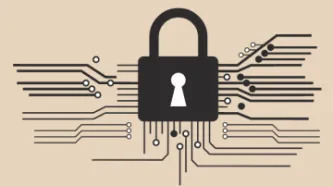Search
Content type: Examples
Zoom said it would deliver end-to-end encryption as one of a number of security enhancements to its service, but it will only be available to enterprise and business customers whose identity they can verify and not on the free service. The company says it wants to be able to work with law enforcement in case people use Zoom for a "bad purpose". None of Zoom's competitors offer end-to-end encryption.
Source: CNBC
Writer: Jordan Novet
Content type: Examples
The controversial Israeli spyware company NSO Group's US arm, Westbridge, has been trying to pitch its phone hacking software to US law enforcement agencies such as the San Diego Police Department, particularly a tool called "Phantom", which the complany claims can overcome encryption, track geolocation, withstand a factory reset, monitor apps and voice and VOIP calls, and collect passwords.
Writer: Joseph Cox
Publication: Vice
Content type: Advocacy
Privacy International responded to the call for submissions of the Working Group on the use of mercenaries as a means of violating human rights and impeding the exercise of the rights of peoples to self-determination on role of private military and security companies in immigration and border management and the impact on the protection of the rights of all migrants.
This submission builds on PI’s research and reporting highlighting examples of the involvement of private companies in…
Content type: Examples
Bluetooth utilizes a device pairing mechanism based on elliptic-curve Diffie-Hellman (ECDH) key exchange to allow encrypted communication between devices. The ECDH key pair consists of a private and a public key, and the public keys are exchanged to produce a shared pairing key. The devices must also agree on the elliptic curve parameters being used. Previous work on the "Invalid Curve Attack" showed that the ECDH parameters are not always validated before being used in computing the resulted…
Content type: Examples
An engineering and computer science professor and his team from The Ohio State University discovered a design flaw in low-powered Bluetooth devices that leaves them susceptible to hacking.
Zhiqiang Lin, associate professor of computer science and engineering at the university, found the commonly used Bluetooth Low Energy devices, such as fitness trackers and smart speakers, are vulnerable when they communicate with their associated apps on the owner’s mobile phone.
"There is a fundamental…
Content type: News & Analysis
Photo by Daniel Jensen on Unsplash
Everyone is talking about Facebook's end-to-end encryption plans and the US, UK and Australian government's response. Feeling lost? Here is what you need to know.
What's Facebook trying to do?
First let's be clear: Facebook has many faults when it comes to privacy. It's also suffered a number of security failures recently. See here for instance.
In response to their successive failures to protect your privacy, Facebook announced in their 'pivot to privacy…
Content type: News & Analysis
Today’s announcement regarding the UK and US agreement signed pursuant to the US CLOUD Act is being touted on both sides of the Atlantic as a major victory for law enforcement and security. But it is a step backward for privacy.
And it’s far more complicated than their press release and letter to industry.
The agreement replaces the prior system, under which law enforcement agencies from around the world, including the UK, had to meet US legal standards in order to get access to content held…
Content type: News & Analysis
Privacy International has joined a global coalition of privacy campaigners, tech companies, and technology experts to respond to proposals by British intelligence chiefs aimed at allowing them access to encrypted messaging apps such as WhatsApp or Signal.
If implemented, the proposals would allow government authorities to force messaging platforms to silently add a law enforcement participant to a group chat or call.
Such a capability poses serious threats to…
Content type: Examples
In February 2019 Google engineers announced that they had created faster, more efficient encryption system that could function on less-expensive Android phones that were too low-powered to implement existing full-device encryption. The scheme, known as Adiantum, uses established and well-vetted encryption tools and principles. Android has required smartphones to support encryption since 2015's version 6, but low-end devices were exempt because of the performance hit. It will now be up to device…




